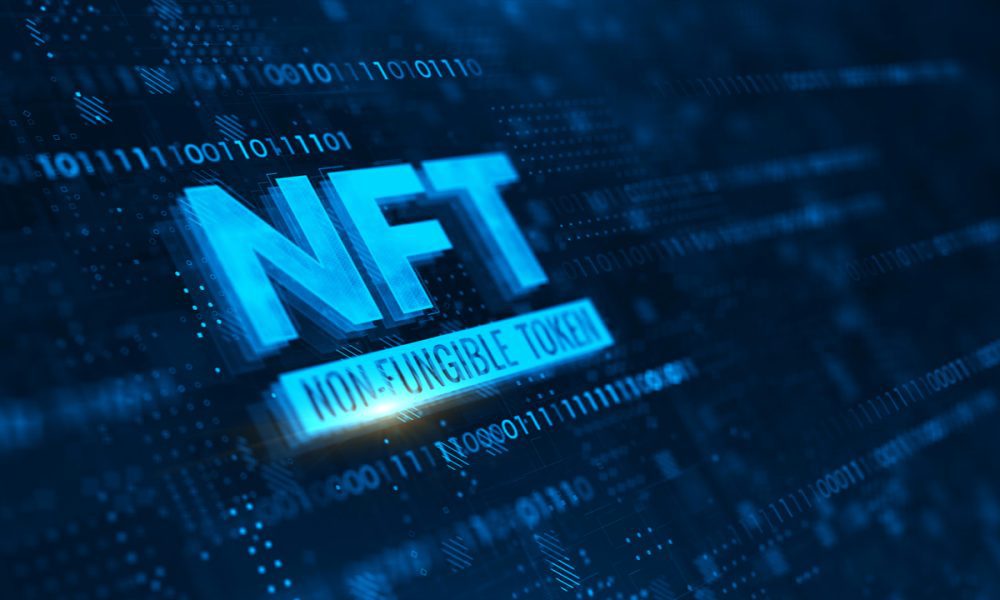For a massively multiplayer, NFT-based game that’s not a metaverse, Illuvium sure did sell a lot of “land” plots.
The Ethereum-based play-to-earn game sold $72 million worth of nonfungible tokens (NFTs) that give owners control of in-game land on June 5, Decrypt reported. Sales like these are roughly how the immersive virtual reality metaverse worlds like Decentraland and The Sandbox are bringing in millions.
While the fantasy world P2P battle game may be taking a page from the metaverse playbook, it does seem to focus on NFTs as a medium for in-game goods that can be bought and sold. Those land plots, for one thing, appear to be a source of fuel used in the game, rather than platforms for building anything from mini-games to marketing outlets.
So while other game worlds like Fortnite are expanding into metaverses, Illuvium seems to be happy with an NFT economy, in which players equip characters with armor, “illuvial” battle pets and other goods that can be sold for the game’s native cryptocurrency token, ILV.
See here: Gaming Platforms Betting On ‘The Metaverse’ As Next Internet
That said, $72 million seems like quite a lot of money for a revenue-generating “land” plot, for a game that, while highly anticipated, is still in beta testing. And given that the top play-to-earn NFT game, Axie Infinity, has been bleeding players as well as seeing the price of its native token plummet, it’s hard not to wonder if Illuvium’s NFT sales didn’t get a boost from metaverse mania.
Fortnite developer Epic Games, on the other hand, is diving deeper into the NFT world. Although the tokens are not used in its flagship game, Epic Games just introduced an NFT-based, Wild West-themed battle royal game, GRIT, to its Epic Game Store.
Rival platform Steam, meanwhile, has banned NFT games after a loud and growing backlash from hardcore gamers, who see them as a scammy “buy-to-win” tool that generates revenue at the expense of fair play.
Game retailer GameStop, on the other hand, just announced a forthcoming NFT marketplace.
NFTs Rally Support
The crypto community raised $1.4 million via an NFT sale to support PoolTogether, a “no-loss lottery” project that is essentially a gamified crypto lending platform, which is being sued in what is fairly clearly a broader attack on decentralized finance (DeFi).
The lawsuit, by a former staffer of DeFi opponent Sen. Elizabeth Warren, D-Mass., seeks double damages for the $12 he invested, in a suit that The Wall Street Journal said “is nominally focused on winning a potentially large pot of financial damages, [but] also appears to be a deliberate effort to put some of the DeFi community’s core doctrines to the test.”
It’s another example of NFTs’ fast-growing use as a cause-based fundraising tool that not only allows buyers to support anything from Ukraine’s fight against Russia to protecting chimpanzees, but also provides something in the way of an investment in the form of resalable digital art.
Giving Block, a cryptocurrency-focused charity for nonprofit fundraising projects, raised about $1 million in an NFT sale that supported a wide variety of causes, ABC News reported in December.
In a series of tweets, PoolTogether CEO Leighton Cusack said he was amazed, noting that the NFT sale reached “100% of our goal — in this economy? … Absolutely amazing to see what’s been accomplished by the community rallying together.”
In this economy???
— Pooly (@PoolyNFT) June 5, 2022
But he also noted that the Pooly NFT mint was closed — so no more NFTs would be added to the pool — and solicited crypto companies to offer perks to holders.
Hong Kong Issues NFT Warning
Hong Kong’s Securities and Futures Commission (SFC) released a consumer warning on Monday (June 6) warning NFT buyers to be wary.
“As with other virtual assets, NFTs are exposed to heightened risks, including illiquid secondary markets, volatility, opaque pricing, hacking and fraud,” the SFC said in a release. “Investors should be mindful of these risks, and if they cannot fully understand them and bear the potential losses, they should not invest in NFTs.”
The warning focused not on NFTs holding art or videos, but on tokenization, in which an investment is broken up into shares represented by NFTs, a growing area of concern by the U.S. Securities and Exchange Commission.
Read more: PYMNTS NFT Series: Can NFTs Be Securities? The SEC Says Yes
——————————
NEW PYMNTS DATA: THE TAILORED SHOPPING EXPERIENCE STUDY – MAY 2022
About: PYMNTS’ survey of 2,094 consumers for The Tailored Shopping Experience report, a collaboration with Elastic Path, shows where merchants are getting it right and where they need to up their game to deliver a customized shopping experience.
Disrupting traditional travel payments — a legacy ecosystem rife with opacity and inefficiency — is potentially a killer app for cryptocurrency, availing…
In April, insufficient funds became the most common reason that consumers’ payments were declined, according to “Digital Economy Payments,” a PYMNTS report…
Companies are investing in digital transformation to fight inflation and overcome other challenges, Samsara executives said Thursday (June 2) during the company’s…
You have successfully joined our subscriber list.
© 2022 What’s Next Media and Analytics™

